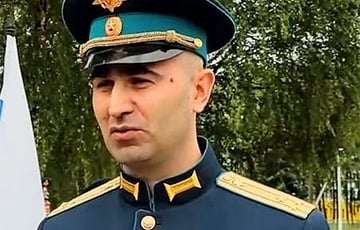The Commander Of The Pskov Division Of The Airborne Forces Has Died
57- 6.05.2025, 22:05
- 51,248

He was buried at Troekurovskoye cemetery in Moscow.
A number of blogs and Telegram channels on Monday reported the death of the commander of one of Russia's most famous combat units, the 76th Guards Airborne Airborne Assault Division (also known as the Pskov Division), Col. Abdulaziz Shikhabidov. The "Agency" drew attention to this. Judging by the published videos, which, in particular, show a funeral wreath with his name on it, the colonel has already been buried.
Shikhabidov, a native of Dagestan, was appointed commander of the division, which is taking part in the war in Ukraine, in March of this year.
According to the "Agency", Dagestan schools, which had previously reported on his appointment, began to report Shikhabidov's death. Thus, a memorial corner dedicated to Shikhabidov was opened in Lyceum No. 13 in Kaspiysk. Here they placed his photos and materials about the military man's combat path. And in Buynak secondary boarding school No. 3 extracurricular activities were held for pupils of 7-9 grades. During the event, schoolchildren were reportedly read a speech by Dagestan's Education Minister Yakhya Buchayev. After publication, the photo report from the Buynaksk school account was deleted, but remained in the web archive.
"Agency" notes that the death of the colonel was also reported by a number of pro-war publicks. The community "for the Motherland and the Airborne Troops" wrote that the farewell to the commander took place at Troekurovskoye cemetery in Moscow on Monday. It is not known when exactly and under what circumstances Shikhabidov died. Officially, his death has not been reported.
Soldiers of the Pskov division took part in hostilities in Ukraine since 2014 - the Russian authorities did not recognize this at the time, but journalists established the fact that several soldiers of the division were killed back in August 2014. After the full-scale invasion of Ukraine, members of the division were also stationed in Bucha, where many local residents were killed.











